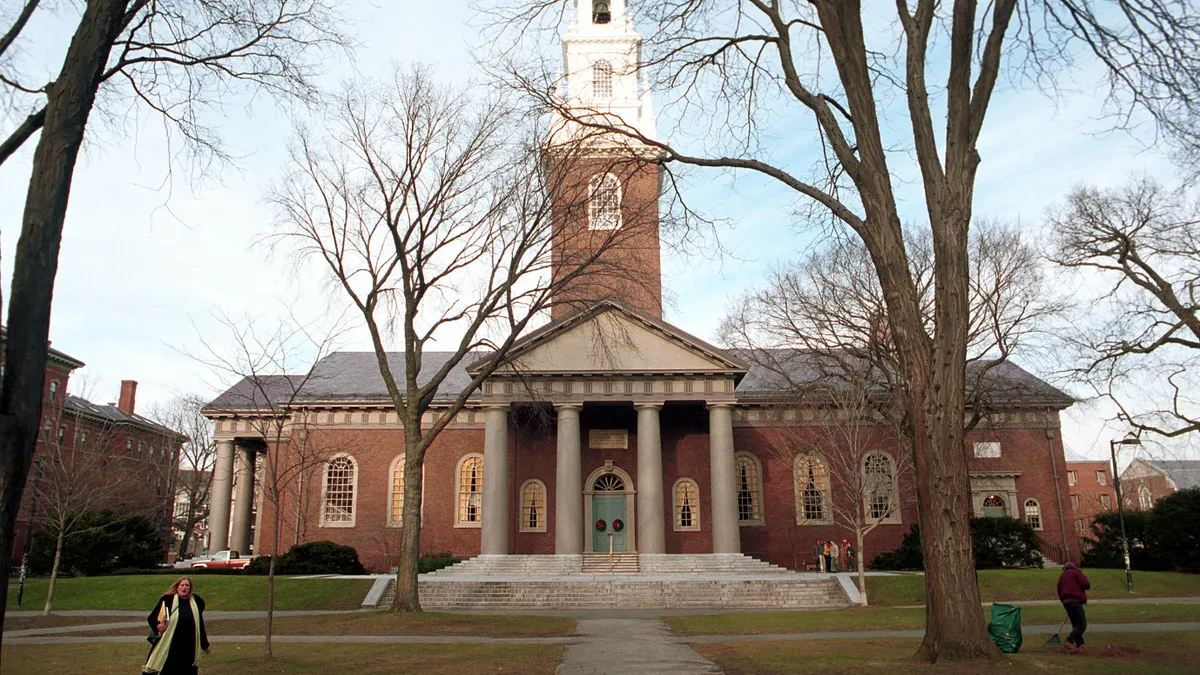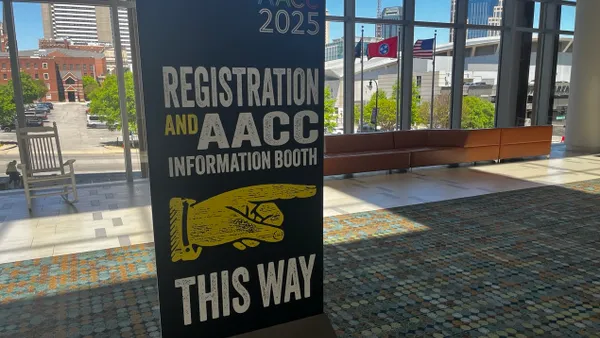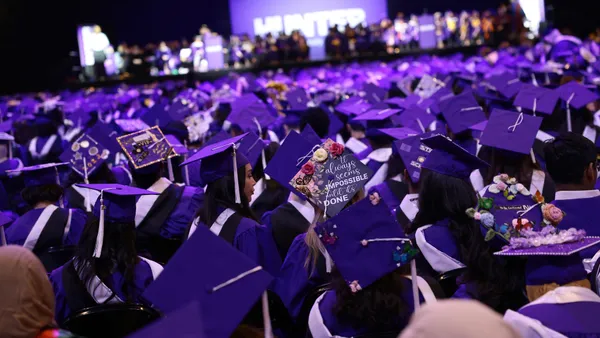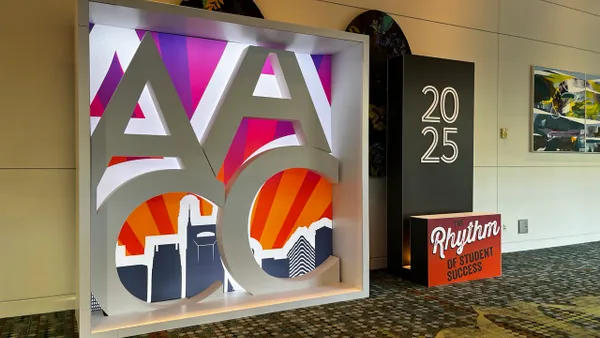Dive Brief:
-
There was a substantial rise in college applications from underrepresented minority groups, first-generation students, and those from low and middle-income backgrounds during the 2023-24 school year, according to Common App's end-of-season report released Thursday. The rise in minority group applications continues a decade-long trend.
-
Common App allows students to apply to over 1,000 member colleges through its online platform. The number of students applying to the platform’s member colleges who identify as a minority race or ethnicity increased 11%, compared to 3% for nonminority groups, the report found. Growth was fastest among American Indian or Alaska Native, Latinx and Black or African American applicants.
-
The same student racial groups' applications to less selective schools also steeply increased, according to the data. All races remained more likely to apply to less selective institutions, with the exception of Asian students, who are more likely to apply to institutions defined as "most" and "more" selective.
Dive Insight:
In two U.S. Supreme Court cases decided in 2023 against Harvard University and the University of North Carolina at Chapel Hill, the advocacy group Students for Fair Admissions claimed that race-conscious admissions discriminated against Asian American applicants.
The court's decision to end the longstanding college admissions practice, which was meant to diversify incoming classes, led many educators to worry that Black, Latinx and other underrepresented student groups would be hindered from applying to higher education institutions, especially the more competitive ones.
With the ruling expected to increase pressure on elementary and secondary schools to develop a college-going culture and to bolster support for minority students aspiring to pursue postsecondary education, the K-12 sector braced for the decision’s impact. The Education Department hoped to counteract any potential negative fallout from the decision and told students to "not let this ruling deter" them from pursuing their "educational potential."
However, according to Common App data, a decrease in minority applications has not materialized.
The researchers "do not observe any appreciable changes from ongoing historical trends," said the most recent report reviewing the 2023-24 application season — the cycle immediately following the Supreme Court decision. "The only exception is what seems to be a leveling-off of Asian applicants’ applications to the Most selective members," the report added.
In June, Common App found in a separate report that the percentage of Asian, Black, Latinx and White students referencing at least one race or ethnicity-related phrase in their Common App essays decreased in 2023-24. However, it didn't find any significant changes overall in students' application behaviors, such as how they self-identify their racial or ethnic identity. Rather, there were more meaningful shifts around the 2020 season during the COVID-19 pandemic and the test-optional policy changes it triggered at many colleges, researchers said.
Although the Common App data suggests the ruling hasn’t deterred students from underrepresented racial and ethnic groups from applying to college, it remains to be seen how the ruling will impact admissions, especially at highly selective universities. Just this week, officials at the Massachusetts Institute of Technology blamed the Supreme Court ruling for lower diversity in its incoming class.














